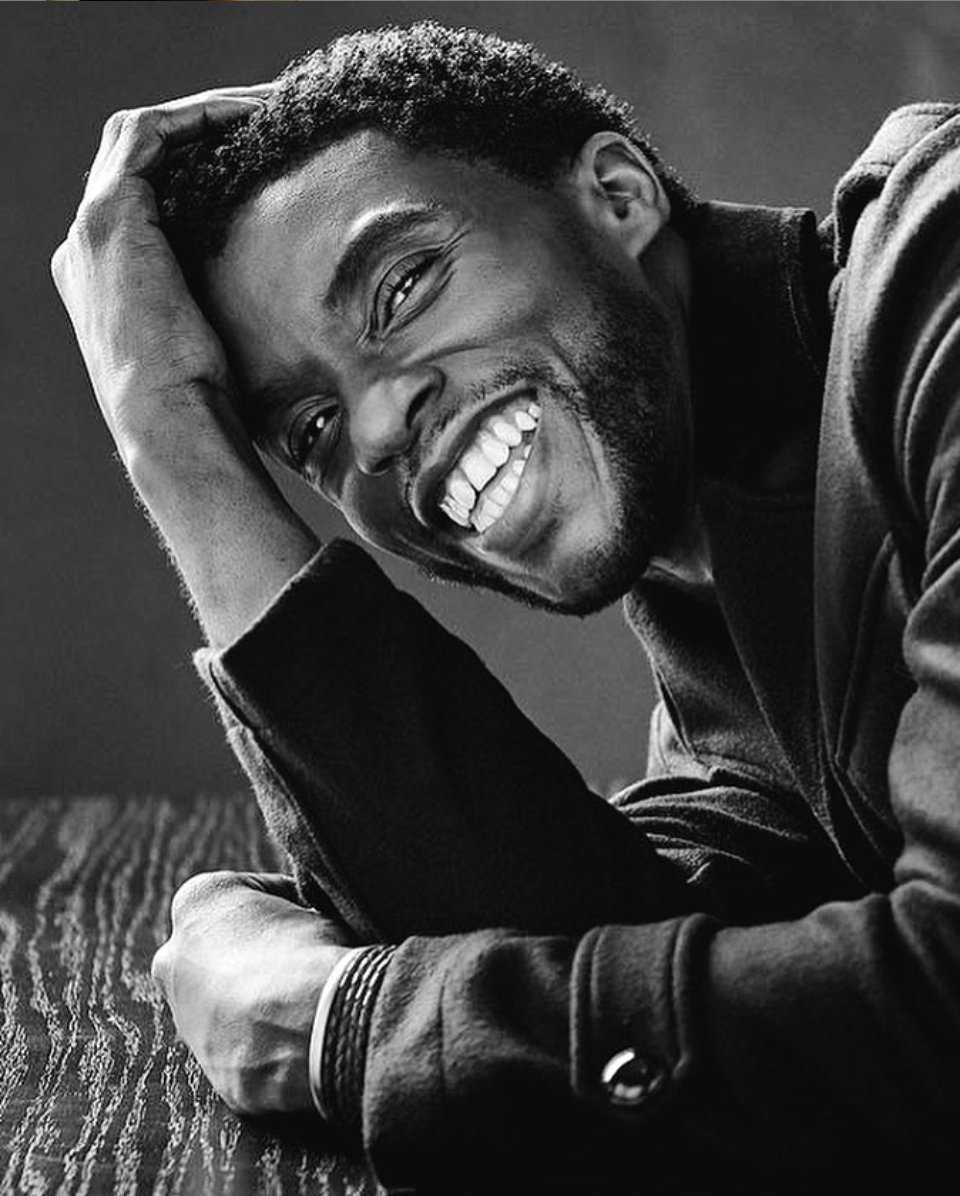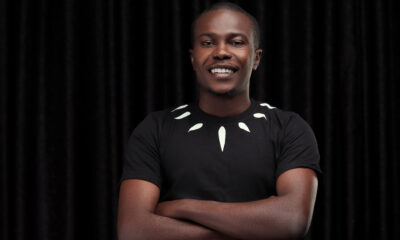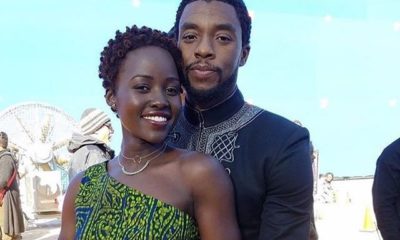Features
Mfonobong Inyang: Honouring the Life & Legacy of Chadwick Boseman (The Black Panther)

There are many reasons why most of us want to forget 2020; it was a year that took its toll on us. We lost a lot of things and people that were very dear to our hearts. On the 28th of August 2020, the entire Marvel Cinematic Universe and beyond woke up to the rude shock that was the passing of Chadwick Boseman. One of the most culturally consequentialmovies from Hollywood in the past decade has to be the Black Panther – Ryan Coogler was a beast on this one. Being a stan of the Marvel Cinematic Universe since inception, it hurt so much to lose Chadwick Boseman who played the role of King T’Challa. As with most instructive movies, I watched the first time for purely entertainment purposes but subsequently for its didactic value.
“Baba, tell me a story”
Not many production companies tell stories better than Marvel Studios! I can tell you first-hand because I have watched just about every single movie in the Marvel Franchise. The Black Panther which is the story of a fictional African nation of Wakanda starts on that very note where we are given access to the father-son conversation between Prince N’Jobu, brother to the then King and his son – a much younger N’Jadaka. One of the most powerful ways of teaching our children and putting ideas in their heads is through storytelling. The generation coming behind us needs to know their history so that they can properly grasp the spirit and motivation for doing what we do. Culture is handed down principally through the stories, fables, myths and legends that our forebears told us. Formal education can do only so much, we need the next generation to possess that native intelligence.
“I never freeze”
While on the Royal Talon Fighter, T’Challa watched the news of his father’s death and the naïve narrative the world holds of “the tiny nation of Wakanda.” King T’Chaka’s 35-year reign on the throne was ended by a terrorist attack while he was at the United Nations. Okoye, the no-nonsense general of the Dora Milaje, an elite army of female fighters, accompanied him on this mission which was to successfully and without harm, extract a Wakandan spy, Nakia, for the Busan Mission. Nakia was undercover in Sambisa Forest, Nigeria – where she and other females were captured by extremists. Interestingly, Nakia was also an ex of T’Challa.
He remotely conducts intelligence, surveillance and reconnaissance on the convoy of the extremists using a unique 3D-animated tactical board and thereafter decides to strike. When Okoye tried to join the assault, the young king declined. Then the general, knowing how emotional he was and still is about Nakia, warns him, “just don’t freeze when you see her” to which he unconvincingly rebuffs her claim by retorting, “what are you talking about? I never freeze!” We all need people in the mould of Okoye who know us enough to tell us some home truths and can intervene when we’re at our weakest points. In fairness to T’Challa, he knew enough to ask for help from Nakia even though they were no longer an item. The objective of arresting Klaue was a bigger issue than anything that could have transpired between him and Nakia.
“This never gets old”
On the way back to the Wakandan capital city of Birnin Zana AKA “The Golden City,” T’Challa uttered those words. Remember the BBC had earlier described it as, “an impenetrable rainforest” which mirrored how the rest of the world also saw it. Everywhere leading to cosmopolitan Wakanda looked like the ‘typical’ African country, so those comments may infer that the use of such rural ambience as a decoy for a highly developed Wakanda is what never gets old.
Sometimes, you have to choose profitability over popularity. Both of them are good to have but if it came down to one, I would go for profitability. Wakanda chose to do what it took for their continued survival as a collective. They saw others being exploited, enslaved and endangered, and they wanted none of that. Their model of stealth becomes pervasive in their actions and inactions.
“So surprised my little sister came to see me off before our big day”
T’Challa’s bond with his only sibling, Shuri, is simply lovely to watch. When they exchanged banter after the Sambisa Mission, you would almost forget that he was the crown prince of Wakanda. He related to her more as a brother, not just a king, he accommodated her youthful exuberance without taking offence.
“How are you feeling today, mama?”
His mother, Ramonda is not left out, he is a son to her more than he is a king. His mother vicariously lives both her late husband’s and her dreams through T’Challa. He recognizes the weight of this responsibility and is sensitive to her sentiments. We would later see her encourage him when he almost lost the duel to M’Baku, “show him who you are!” This could have only come from intimate conversation she must have had with him about his rich heritage. As the movie progresses, we see more iterations of all these roles. The key here is to identify and determine the order or priority of these roles in our lives. We are many things to many people but we must determine which roles are more important than others. That is where emotional intelligence comes in. At the office, you can be the head honcho but at home, your wife wants her husband and your children want their father – not a business executive!
“Don’t make me kill you”
Remember the winner of the challenge emerges only when the other person yields or is outrightly killed. So this wasn’t a threat, it was a legal option available to the young prince who had gotten his opponent in a deadly submission grip. M’baku, on the other hand, preferred to die than to yield. T’Challa further admonishes him that he had fought with honour and his people needed him. This showed the type of leader T’Challa was versus the type of leadership mindset M’Baku had. One believed that he didn’t want to win the challenge but lose his brother, so he was gracious in victory in an otherwise unforgiving combat. He believed that by being empathetic, he could gain over the separatists. The other was uncouth and wanted the death of the incumbent as a trophy for what he considered to be an unqualified government.
“Play nice”
Klaue is eventually captured alive and is taken to a CIA holding facility. Everett Ross comes up with the popular good cop, bad cop approach to interrogation. Okoye is not comfortable with that arrangement perhaps owing to the fact that Klaue is perhaps the most knowledgeable person about Wakandan state secrets that isn’t a Wakandan and might divulge too much to the Americans. The king was more interested in taking Klaue back to Wakanda to stand trial for his crimes but Ross wasn’t having any of that, insisting that the matter was under his jurisdiction. Okoye is infuriated by the fact that Ross thinks he is doing them a favour by allowing them to be in the room. She even threatens to impale him to a desk if he touches the king again.
T’Challa douses the tension by thanking Ross for his help in Busan but it was really a decoy to plant a bug on him so that the Wakandans could eavesdrop on Ross’ conversation with Klaue. Someone once defined diplomacy as “telling a person to go to hell in such a way that they look forward to the trip.” It is also described as “the art of dealing with people in a sensitive and tactful way.”
“All of you were wrong”
The mismanagement of the N’Jobu/N’Jadaka saga was a metaphor for a culture that put a premium on protecting its interest over anything else. T’Challa posited that the fear of being discovered had overtime caused Wakanda to take questionable decisions and it was time to rethink their approach. During his first visit to the ancestral plane, T’Challa mentions that he is not ready to be without his father. On his second visit, he asserts that he “cannot stay here” with his father. He decides to go back to chart a new course for Wakanda.
Culture is a very powerful thing. However, we must grow to the point we can interrogate our methodology and surrender to superior arguments. Culture is the way of life of a particular group of people at a particular point in time. This suggests that culture should be dynamic and evolve to meet the contemporary yearning and aspirations of a people. Culture should not be so dogmatic and set in stone that we become unwilling to unlearn.
“You are not fit to be a king”
Okoye has had enough. She and the Dora Milaje move to stop N’Jadaka, W’Kabi and the Border Tribe before they wreck further damage on Wakanda. She addresses T’Challa as “king”, inferring that N’Jadaka has no legitimacy. W’Kabi is also refusing to listen, he is hell bent on killing T’Challa. People like Okoye are those who understand nation-building, they are loyal to the country and the rule of law (constitution or culture) but not necessarily the government in power. She may have a quiet preference but when it comes to the law, she has no dog in the fight. She is a metaphor for the lady justice, blind to the sentiments, impartial to the politics and weighs every case by its own merits.
Wakanda Forever!
In the honour of Chadwick Boseman, I wrote an incident-inspired book, over 20,000 words of odd pearls that have been extrapolated with surgical precision on the life, love and legacy of the Black Panther. The Wakandan philosophy is what I succinctly expounded in this piece, one I strongly recommend. It also has inputs from some of my favourite Wakandans like Evans Akanno, Valentine Ohu, Akin Adesoji and Kelvin Ibrahim. If the Black Panther movie entertained you, this book will educate you about powerful life lessons about Wakanda that were hidden in plain sight.
“Wakanda forever” wasn’t just a catchphrase or representative of the black culture but also it underscored an enduring legacy. The king of Wakanda’s mandate wasn’t just to protect the people and property of Wakanda but, more importantly, their philosophy.
Legacy in today’s world isn’t just a narrative that you try to force down people’s throats, you have to do better if you want your name to be remembered for good. The Black Panther said, “in our culture, death is not the end.”
Rest in power, Chadwick Boseman, you will always be our king. Wakanda forever!


















